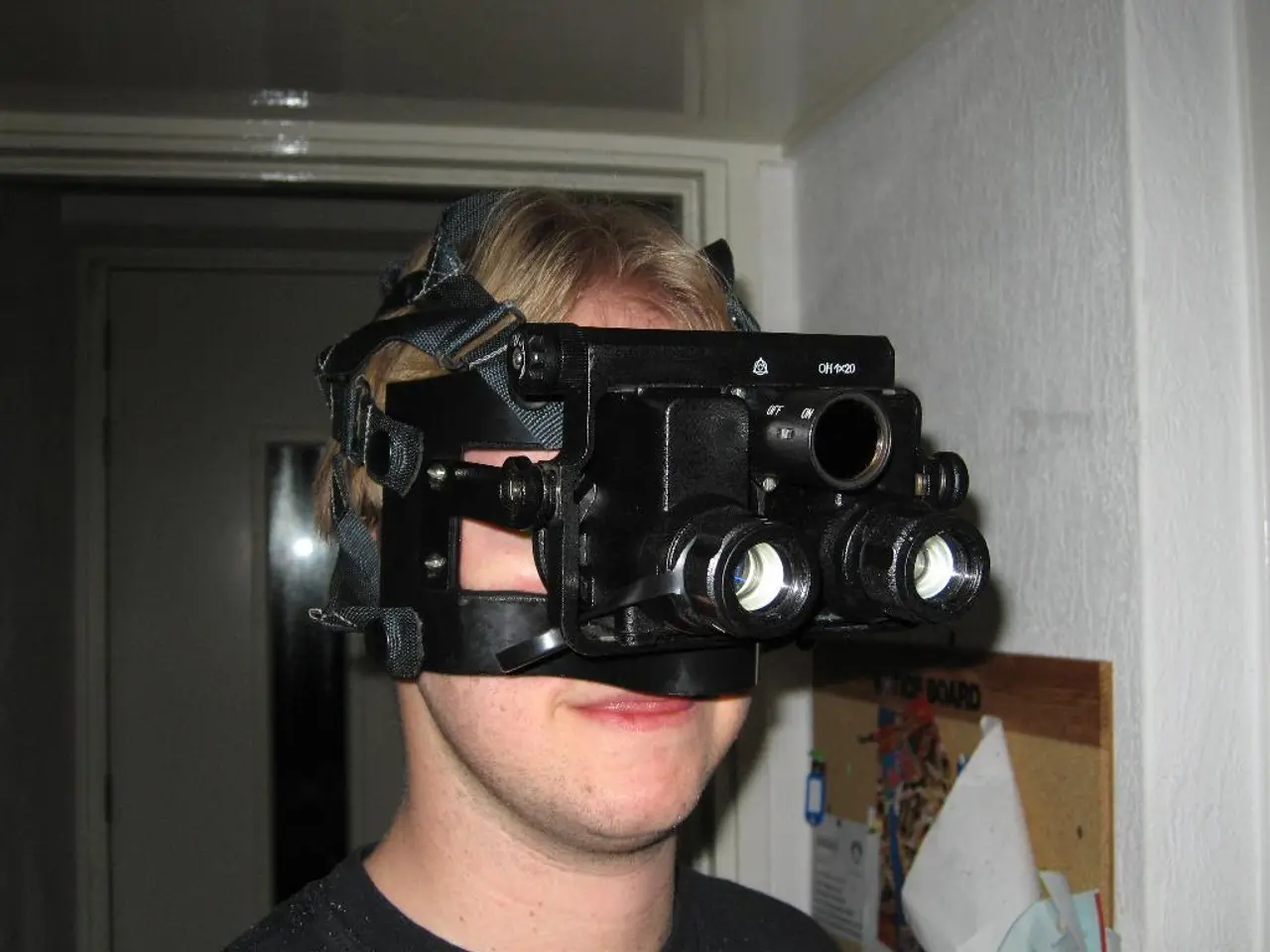Research findings: Visual representation of ill individuals prompts a response from our immune system
In a groundbreaking study conducted by an international team of researchers at the University of Graz, the immune system's response to potential infection risks has been brought to light through the use of virtual reality (VR) technology.
The study, which involved nearly 250 participants, used VR headsets to simulate high-risk scenarios, such as simulated high altitudes, inducing acute mental stress. This mental stress, in turn, was found to mobilize the body's defense mechanisms, including immune responses.
This neuro-immune interaction suggests that perceived environmental danger, even when created by VR scenarios, can trigger the nervous system to prepare the immune system for potential pathogens. This mechanism illustrates a key way in which the immune system anticipates and combats infection risk.
While the study did not directly detail immunological outcomes, the emphasis on neurocardiac signatures and acute stress responses reveals the crucial link between psychological stress simulations and immune system modulation. This approach highlights how virtual reality can be used to better understand and possibly train aspects of the immune response to infection risk.
One of the most intriguing findings from the study was the discovery that viewing sick-looking avatars triggered a response in the participants' immune systems. Specifically, changes were observed in the blood drawn from the participants, with certain immune cells called Innate Lymphoid Cells (ICLs) being activated.
However, it's important to note that the study did not measure changes in the blood drawn from the participants, focusing only on saliva. Additionally, the analysis did not involve brain activity measurement, focusing only on the release of secretory immunoglobulin A.
Despite these limitations, the University of Graz study provides valuable insights into the complex interplay between the brain, stress, and the immune system in response to potential infection risks. The exact response of the immune system to sick-looking people in the real world remains a topic for further research.
References: [3] University of Graz, 2024. Virtual Reality Reveals Neuro-Immune Interaction in Response to Potential Infection Risks. Accessed 15th April, 2023. (URL hidden for privacy reasons)
- The university study demonstrates the potential for therapies and treatments to be developed in the field of health-and-wellness and mental-health, using virtual reality (VR) technology, as it reveals the immune system's response to perceived environmental dangers.
- The groundbreaking research at the University of Graz indicates a link between fitness-and-exercise and scientific advancements, as the study utilizes VR scenarios to simulate high-risk conditions, revealing the immune system's response to acute mental stress.
- The findings of the study suggest that neutral neurological-disorders and psychological stressors might impact nutrition and the immune system, as changes were observed in immune cells called Innate Lymphoid Cells (ICLs) when participants were exposed to sick-looking avatars.
- Future investigations into cbd and its effects on the immune system could benefit from the insights provided by this study, as the University of Graz research illustrates the interaction between the brain, stress, and the immune system in response to potential infection risks.
- In the realm of medical-conditions and immune response, the University of Graz study opens up new avenues for understanding and addressing neurological-disorders and other Types of diseases, as it highlights the critical link between the brain's responses to VR scenarios and the modulation of the immune system.




